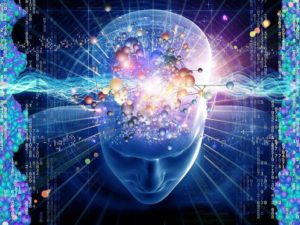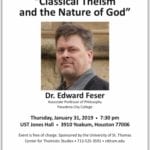Faith in Science? (Part II)
In the last post on faith in science we were left wondering why there is such a strong trust in what the scientific process or method yields for us. Auguste Comte was fascinated with this last stage, this greatest achievement of humanity, the discovery of science. Even today science continues to attract an almost cult-like following. Earlier this week, the bishop of Barcelona noted that it seems the greatest crisis in the world is the crisis of faith, especially in Europe. One might even say this is the same religious following that Comte intended to found in his ‘Religion of Humanity’ and Positive Catechism’. Some examples include Richard Dawkins, Daniel Dennet, Sam Harris and the now deceased, God rest his soul, Christopher Hitchens. These men were thorougly confident that the solution to knowing about reality had been found. All we need, is to DO SCIENCE.
The scientific method, ironically enough, is based on the Aristotelean view of causality, which includes material, formal, efficient and final causes. What does it mean to ask for the cause of a thing, like a missile for example? What caused a missile? Aristotle would say there are different aspects. The material cause is the basic combination of various metals, fuels, plastics and explosive components, without considering the components ordered as a whole. The formal cause would be the fact that the parts are ordered to form what we call a missile, in the same way that a magnetic field keeps metal shavings forming an arc. The efficient cause is that motion which placed the matter in order and lastly, the final cause is the purpose of the missile. Even though the missile has no intentionality or awareness of its functioning, it is still directed towards a goal in the same way that weeds are directed to reproducing or the heart is directed towards pumping blood. Aristotle considered the study of these four causes to be what constitutes science, subdivided into physical, mathematical and metaphysical aspects of knowledge.
However, modern science only deals with the material and efficient causes and when it became common belief that formal and final causes were merely impressions that we impose on the world, it was decided that modern science is the way to go! Only modern science. This brings up a major topic I will be discussing in future posts. Science is not a refutation of the Church’s supernatural beliefs that came before because modern science was born out of the Church, it was born from the Aristotelian/Thomistic understanding of the world. It was only when certain people began believing that the modern scientific explanation (matter and motion) is the sufficient explanation for an given event, then tensions arose. What is a dog? Aristotle and Descartes have quite different answers, one includes a self given entity and the other might include numbers and equations alone.
Science became glorified by men like Comte. What kind of man would have the guts to send a letter to the Pope in Rome asking him to join his venture to make mankind rise above its silly supernatural beliefs and pursue the domination of mankind through the scientific endeavor which could take us to places unimaginable? The answer is that only a man who was consumed with zeal for science –Comte.
Richard Dawkins isn’t much different. In his book, The God Delusion, which has been a best seller for years, he gives an argument in the last chapter as to why we need not be discouraged that God doesn’t exist only because science is here to save us. Even though we will die, we can at least recognize that someday science may be able to save us future members of the human race from that death. We should have Wonder and Awe at the power of science, something which I learned was a virtue of the Holy Spirit in confirmation class. I want to ask WHY?
I think I have an answer. The answers that are produced by science are useful and dependable. You can be sure that you are going to get some kind of answer with the scientific method. You are going to get data…some of it may be in favor of one conclusion and the other percent in favor of another conclusion. The conclusion with the most data in its favor it the one that is considered to be true (tentatively). However, since when does the utility of information determine its value or allow it to preclude other sources of data which may legitimate?
Let me be clear: Science is based on Aristotle, it is not an invention of the so called “Enlightenment”. The conclusion of the enlightenment was a decision to consider ONLY the material and efficient causes (modern science) in which case we stop believing that there is anything more to a ‘thing’ than the sum of its parts and there is no purpose involved with anything.
Later this year I will be publishing a response to Richard Dawkins and the God Delusion from the Aristotelian perspective. Though it has been done before, it apparently needs to be done again.
For those more academically inclined, which you probably are if you read this far in the post, a philosophy conference was given at Franciscan University (my alma mater). Here is a recording of the lecture given on this topic of causality:







Comments